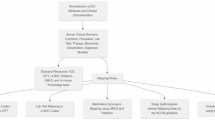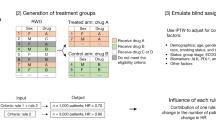Abstract
The Medical diagnosis and screening field has benefited tremendously from the advancement of computer technology and access to data over the past decades. However, due to the complexity of medical diagnosis and medical research, there are still many unknown problems in this field. With the recent emphasis of the national government and academic agencies in open sharing data and advancement of computational tools, e.g. machine learning and artificial intelligence, there is a renewed hope to tackle such complex problems. One of the fields that can benefit greatly from such advancement is the cancer clinical trial matching. This field has gained a lot of attention due to its complexity and the large number of people it affects. The algorithms proposed in this paper aim to assist clinicians and patients in cancer clinical trial matching by reducing the number of eligible trials using a combination of logical conditions and text mining of trial descriptions. Data for this study is provided by the Clinical Trial website which consists of 100 patients’ demographic and clinical information. Our preliminary results demonstrate the capabilities of unsupervised learning and conditional logic in reducing the matched trials and suggest further exploration for improvement and optimization of clinical trial matching for clinicians.
Access this chapter
Tax calculation will be finalised at checkout
Purchases are for personal use only
Similar content being viewed by others
References
U.S. cancer statistics working group: U.S. Cancer statistics data visualizations tool, based on 2019 submission data (1999–2017): U.S. department of health and human services, centers for disease control and prevention and national cancer institute
Weir, H.K., et al.: The past, present, and future of cancer incidence in the United States: 1975 through 2020. Cancer 121(11), 1827–1837 (2015)
Unger, J.M., et al.: The role of clinical trial participation in cancer research: barriers, evidence, and strategies. Am. Soc. Clin. Oncol. Educ. Book 36, 185–198 (2016)
Hao, T., et al.: Clustering clinical trials with similar eligibility criteria features. J. Biomed. Inform. 52, 112–120 (2014)
Boland, M.R., et al.: Feasibility of feature-based indexing, clustering, and search of clinical trials. Methods Inf. Med. 52(05), 382–394 (2013)
Ni, Y., et al.: Increasing the efficiency of trial-patient matching: automated clinical trial eligibility pre-screening for pediatric oncology patients. BMC Med. Inform. Decis. Mak. 15(1), 28 (2015). https://doi.org/10.1186/s12911-015-0149-3
Niwattanakul, S., et al.: Using of Jaccard coefficient for keywords similarity. In: Proceedings of the International Multiconference of Engineers and Computer Scientists, vol. 1. no. 6 (2013)
Müllner, D.: Modern hierarchical, agglomerative clustering algorithms. arXiv preprint arXiv:1109.2378 (2011)
Beeferman, D., Berger, A.: Agglomerative clustering of a search engine query log. In: Proceedings of the sixth ACM SIGKDD International Conference on Knowledge Discovery and Data Mining (2000)
Author information
Authors and Affiliations
Corresponding author
Editor information
Editors and Affiliations
Rights and permissions
Copyright information
© 2020 Springer Nature Switzerland AG
About this paper
Cite this paper
Mansouri, M., Roland, J., Nukala, S., Cho, J., Sartipi, M. (2020). The Heavy Lifting Treatment Helper (HeaLTH) Algorithm: Streamlining the Clinical Trial Selection Process. In: Nichols, J., Verastegui, B., Maccabe, A.‘., Hernandez, O., Parete-Koon, S., Ahearn, T. (eds) Driving Scientific and Engineering Discoveries Through the Convergence of HPC, Big Data and AI. SMC 2020. Communications in Computer and Information Science, vol 1315. Springer, Cham. https://doi.org/10.1007/978-3-030-63393-6_37
Download citation
DOI: https://doi.org/10.1007/978-3-030-63393-6_37
Published:
Publisher Name: Springer, Cham
Print ISBN: 978-3-030-63392-9
Online ISBN: 978-3-030-63393-6
eBook Packages: Computer ScienceComputer Science (R0)




